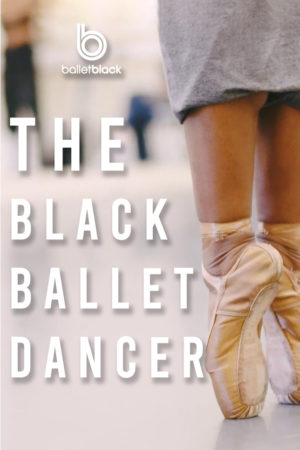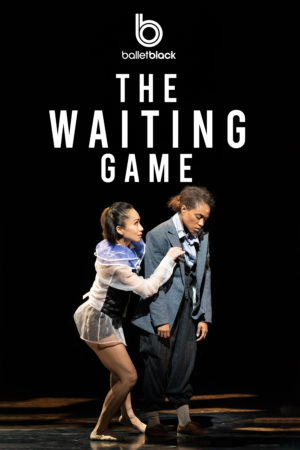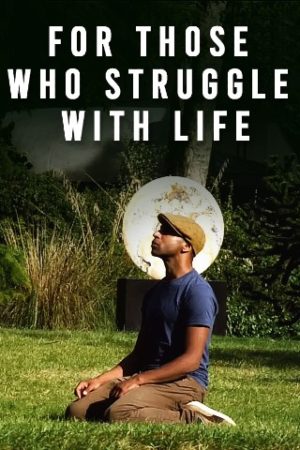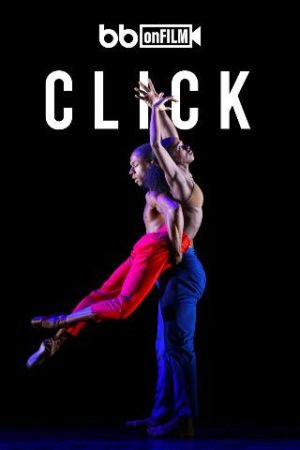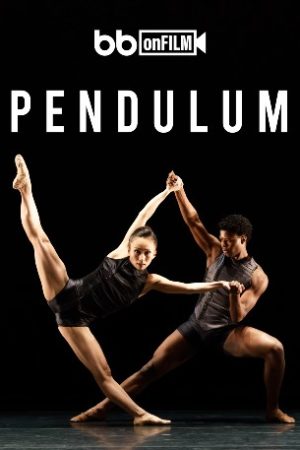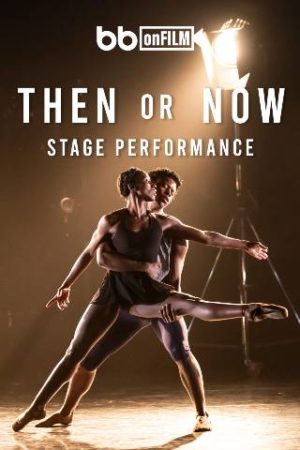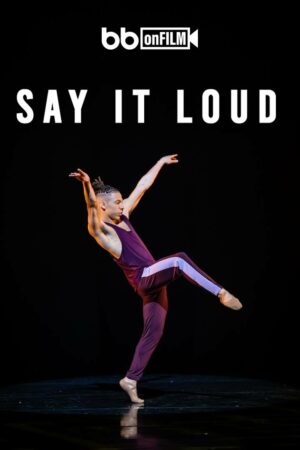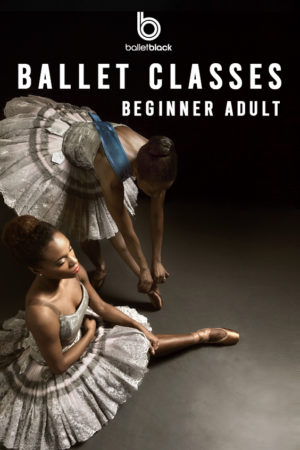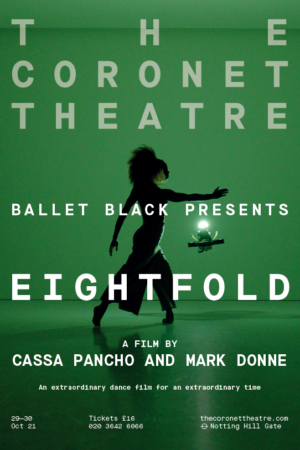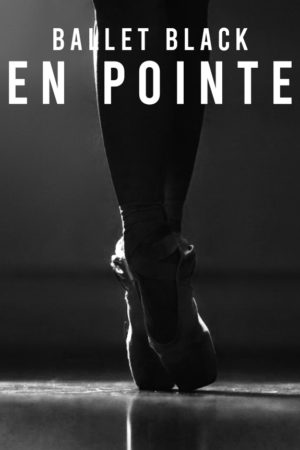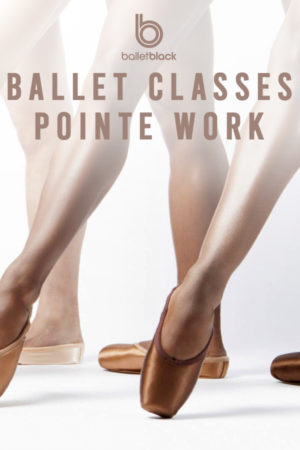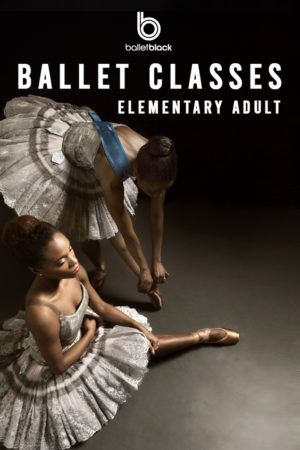Engage with our work though BBonFILM
#BBonFilm is a new and exciting way to showcase our digital work: inspirational dance films, performances, repertoire and on-demand ballet classes. Scroll below to see a few examples of our digital work for film, for dance education & enjoyment and also some inspirational films created by our former dancers and friends.
This concept is fascinating to me as an artist, and I really wanted to find a way to bring this idea to life. I decided to take on the challenge of creating an original score for the first movement of the piece. The process of creating this element of the ballet really helped me to understand what I was trying to achieve choreographically. I am by no means a composer or a musician, but I loved the idea of what this additional layer could bring to the way I work. Music is such a strong driving force in dance, and I have enjoyed knowing that I had room to play around with the sound. Using the dancers’ voices as part of the music is always my favourite thing, and I really wanted to expand on that idea. This year I collaborated with Nathalie Vijver, who was my drama teacher when I attended the Cape Town Academy of Performing Arts. Working with Nathalie gave me so much clarity on the themes of Absurdism, drama, writing and staging a theatrical work like The Waiting Game. The title of the piece on its own is quite interesting to me, in the sense that a person can find themselves in a situation where everything is presented to them, but they can choose to make their move at a later stage. This title led us to write a piece that is both complex yet simple, deep, confusing and fun. It’s about the exploration of the scrambling of thoughts that sometimes don’t lead us anywhere, when all the while, time continues to pass us by.
The Ballet Black team and I spent a lot of time trying to figure out how this would be best communicated through movement and dance. The most amazing thing about being both a dancer and choreographer in the Company is the constant communication we are able to have, and the idea of building something much greater than ourselves. Thank you to Cassa and the dancers for creating this work with me. I am very happy to share it with you.
Mthuthuzeli November
During a difficult period of my life, I had a series of panic attacks, to a point that my body shook uncontrollably. Sometimes I was so broken that I couldn’t focus my mind, and other times my mind worked but the shaking continued. I asked Film Maker Daniel Lowenstein to capture one of these episodes.
The symptoms in this film are genuine and I continued to shake between takes. However, I managed to use the shaking to inform some of the movement.
With the awful moments comes amazing life lessons.
Therefore life is always amazing, even if it doesn’t seem to be at the time. – Jake Nwogu
Directed, Shot & Cut by Dan Lowenstein – Film Director http://www.danlowenstein.com/
Music by Mad EP https://soundcloud.com/mad-ep
It is a non-narrative piece, illustrating that with a snap of the fingers everything can change; with this device we were able to cover a range of different styles, from the, “snap your fingers and I’ll come running,” cartoon-like duet, to the dancers’ bodies reacting to the accelerating snaps and clicks of the ending, to the tenderness of the couple who simply “click” together. During the creative process the dancers embraced the quirkiness of my vocabulary whole-heartedly, with the moves in the studio shifting from sharp and groovy to angular and disjointed, to fluid and intertwined.
When costume designer, Yann Seabra, saw the piece he immediately came up with brightly coloured jackets reflecting the snazzy, sharpness these dancers convey so well. The score for CLICK! is a combination of pre-existing music, original composition, and sound design. This is an approach I tend to use in my work in order to create different dynamics throughout the piece. From the likes of Snapping Fingers by Ken Beebe to Two Of A Kind by composer Kenny Inglis, I find using a variety of music allows me to play with the pace and intensity of the work. My finger-snapping time spent creating this piece with Ballet Black dancers was an absolute pleasure. We clicked. Sophie Laplane
Pendulum is a duet that swings between images of combat and moments of very close partnerships: a feral terrain where the dancers have the freedom to manoeuvre and interpret the material with their own voice. I created Pendulum in 2009 for Cira Robinson and former Company member, Hugo Côrtes, and until now I remember this so clearly. Cassa and I are so humbled and grateful that Cira has passed her knowledge and thoughtful teaching of the piece to a new generation of dancers. It now takes on a whole new lease of life ten years after it was made.
Originally premiering in 2009 at the Linbury Theatre at the Royal Opera House, London, Pendulum returned to the Barbican London stage in 2019.
Composer: Steve Reich (b. 1936)
Pendulum Music (8 Microphones), 1968
Used by arrangement with Universal Edition (London) Ltd.
Choreography: William Tuckett
Lighting Design: David Plater
Costume Design: Yukiko Tsukamoto
Poetry: Adrienne Rich (1929-2012)
Director of Poetry: Fiona L Bennett
Poetry recordings: Hafsah Bashir, Natasha Gordon & Michael Shaeffer
Is it necessary for me to write obliquely about the situation? Is that what you would have me do?
Then Or Now, poetry by Adrienne Rich
Dark Fields of the Republic, Poems: 1991-1995
We are living through times where every action we take – responding to a call to arms, deciding to remain passive – has become a political act. Small or large, personal or public, our actions seem to hold more weight than before. Creating work for Ballet Black in this climate felt very different to previous collaborations; still exciting, but with great responsibility. Whose story should the dancers be telling in a time of such political and social change?
Having worked with poetry as a ‘spoken score’ for a while, I asked Fiona’s help in finding a poet whose work spoke to this narrative conundrum. On reading Adrienne Rich’s Dark Fields of The Republic, I was (and remain), overwhelmed by her ability to call the reader to action; her rejection of apathy, injustice and oppression; her reasoning that love is all – be it romantic, social or political. Specific yet open, Rich provides space for both the reader and the dancer.
In parallel, I had been listening to Daniel’s recording of the Von Biber Passacaglia, and thinking its ‘slippy’ structure, which makes it feel in the moment and improvised, would be wonderful to create to. Daniel later revealed that Biber did indeed intend the player to be actively involved in the piece; to improvise and bring themselves to it as an artist.
Finally, combining the poems, Daniel, and the voices of Natasha, Hafsah and Michael, our sound engineer Ian created a structure and soundtrack, that enabled me to make this piece with Yuki and David.
I remain immensely grateful to this hugely creative, creative team, Ballet Black, and particularly the Adrienne Rich Estate for their wholehearted support of this project.
Will Tuckett
From the Director of Poetry
We go to poetry because we believe it has something to do with us. We also go to poetry to experience the not me, enter a field of vision we could not otherwise apprehend… Someone writing a poem believes in, depends on, a delicate vibrating range of difference, that an ‘I’ can become a ‘we’ without extinguishing others, that a partly common language exists to which strangers can bring their own heartbeat, memories, images. A language that itself has learned from the heartbeat, memories, images of strangers.
Adrienne Rich, from What is Found There, Notebooks On Poetry And Politics, 1994
Adrienne Rich is one of the greatest modern poets of our time. She was born in Baltimore USA in May 1929 and during her lifetime published over 20 volumes of poetry and 8 books of non-fiction prose. A scholar, activist and a writer whose work established new forms, she received numerous awards, fellowships and prizes including The National Book Award and The Lannan Foundation Lifetime Achievement Award. She was a tireless activist and ambassador for human rights olarly and artistic integrity make her a highly relevant and vital source of inspiration for our time. She died in 2012 and her legacy is a defining force in the ongoing development of poetry.
When Will invited me to suggest poetry for a new piece with Ballet Black to explore ideas of belonging and home we began looking for poems that would serve this theme and that would also offer an exciting balance of sound, image and story through which to create. We considered the works of many poets, past and present, and exchanged poems over a number of weeks. When I sent Will, What Kind of Times Are These? the opening poem from Dark Fields of the Republic, the question in this title and the sequence of poems as a whole, resonated so strongly with us that we knew we had found our source. As Will began work with the dancers and the collaboration between music, poetry and dance began, these astonishing poems, with their unique balance of tender intimacy and epic provocation, guided, challenged and inspired us all.
Dark Fields of the Republic is published by W. W. Norton and is available to purchase at www.wwnorton.co.uk. You can find out more about the life and work of Adrienne Rich through the Adrienne Rich Literary Trust: adriennerich.net
Fiona L Bennett Director of Poetry, Then Or Now.
Beginner Ballet (recommended for adults or young people with some dance experience)
Arranged & taught by Cira Robinson. Demonstrated by Alexander Fadayiro
Streaming: This class has been filmed for web only distribution. 4K quality options to follow soon. We experienced some audio issues while recording this video, and you may prefer to lower the volume for the first half of the class.
This class is suitable for adult beginners. Don’t worry about understanding the terminology used. Follow along and go back if you need to! Feel free to adapt any exercise that is too challenging by performing it more slowly. Please also adapt any exercises you need to if your dance space is restrictive.
the idea… In the wake of the most recent Black Lives Matter movement, I wondered how Ballet Black should react to the apparent shift in global thinking about race, inclusion and equity. My overriding feeling was one of exhaustion; micro aggressions, persecution, death – it seemed never ending. I wanted to see the passionate, joyful aspects of our diverse existence brought to the fore, not just the tragic. Blackness it is not a singular experience: we do not all share the same background, beliefs, trauma or skin colour. I felt compelled to respond by showcasing the multifaceted aspects of joyous human emotion, and also the artistic power of Ballet Black, an organisation that has been championing positive change for Black and Asian dancers for twenty years.
How could we respond safely and creatively in the midst of the coronavirus? I made a wish-list of eight choreographers from around the world and chose a theme for each of them: joy, courage, love, passion, hope, rage, strength and power. I paired each choreographer with the Ballet Black dancer I thought would best respond to the challenge each theme presented. Thanks to the miracle of video conferencing software, we were able to create these ballets via a screen from South Africa, Leeds, New York, Berlin, Paris, Amsterdam, and London. The final challenge was to create a piece of dance art that wasn’t simply dance filmed in the usual theatre set-up. I enlisted the talents of film maker, Mark Donne, to bring these hugely diverse artists and themes together, under his exceptional eye. Mark not only agreed, but gave us the title, Eightfold. I called on our wider BB family and asked the incredible writer, Natasha Gordon (Nine Night) and our Patron Thandiwe Newton, to create short narration to link the films together. Together, we have created an extraordinary piece of art in an extraordinary time – Cassa Pancho
Film Directors Note
Traditionally, ballet has a very limited and fixed relationship with film; invariably being performed and recorded in standard, theatrical formats. The first complete transgression and transcendence of this convention is now marked by, Eightfold.
A collision and in a sense, vivid dialogue between cinema and ballet, this conceptualised suite of work is comprised of eight newly choreographed pieces, each performed within a corresponding atmospheric moment, on a symbolic 24 hour “psychological clock”.
Expansive and radical use of light and film technology – including the most sophisticated cinematic rigs and FPV drones deployed as both camera and light source by Bridgerton Director of Photography, Mark Nutkins – render an unprecedented dance experience, where each dancer is introduced by a symbol or glyph, allowing the unadulterated transmission of absolute performance, state, emotion, and deep fusion with the medium of film.
This project is unprecedented in its approach and dimensions, and will, in all probability, radicalise and inspire the relationship between ballet and film forever. – Mark Donne, Film Director
Ballet Black is a professional ballet company for international dancers of black and Asian descent. The company was founded in 2001 by their Artistic Director, Cassa Pancho MBE, in order to foster talent and provide role models to young, aspiring black and Asian dancers. Beyond the Screen is a short film presented by Facebook
Demonstration by Marie-Astrid Mence
Duration: 39 minutes
Streaming: This class has been filmed for web only distribution. 4K quality options to follow soon.
This class is suitable for students of Intermediate Level and above. Feel free to adapt any exercise that is too challenging by performing it more slowly, or by perhaps trying the class in flat ballet shoes or by staying on the whole foot instead of demi pointe. Please also adapt any exercises you need to if your dance space is restrictive.
Health & Safety notice:
These classes are for you to follow along with at home and you do so at your own risk.
Please make sure you have enough space to move your arms and legs without coming into contact with anything.
Wear comfortable clothing that does not restrict your movement.
If you don’t have a barre, use something secure like a countertop or heavy chair.
If you enjoyed our class and would like to make a donation of any size, you can do so using the link below.
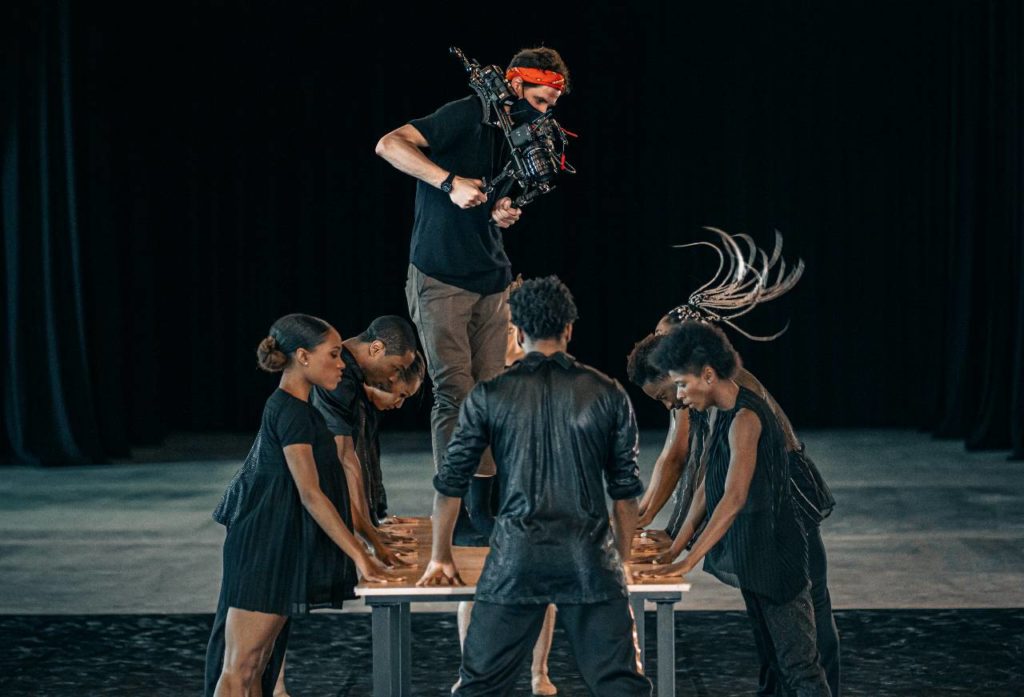
Ballet Black was founded in 2001 with a mission to make a fundamental change in the diversity of mainstream classical ballet – on stage, behind the scenes, and among audiences & participants. We recognise the importance of providing visible, diverse role models of Black and Asian descent in ballet. Our professional ballet company is made up of ten dancers from around the world and we create award-winning new work that is bold and distinctive, both live and on film, that tours the UK and internationally. Our size and scale of production makes it possible for us to perform in large theatres such as London’s Barbican Theatre as well as small scale theatres like DanceXchange, enabling us to take our work to areas that may not otherwise receive high-quality ballet. We have developed a strong reputation as one of the most prolific commissioners of new ballets (over 60) in the UK and are known for nurturing many emerging choreographers who have gone on to enjoy successful careers.
Since 2020 Digital technology has become a vital part of what we do. We are currently developing #BBonFilm as a digital showcase of all things Ballet Black. The development of this initiative has been made possible with support from Bloomberg Philanthropies Digital Accelerator Programme. This grant has supported the consolidation of our Digital Producer and their role in both developing this website and in the launch of our mobile screening initiative. The screening service enables us to take our film work to theatres that are unable to accommodate our live performances, plus schools, universities, film festivals and community groups. Our Digital Producer also oversees the creation of our online library of ballet class resources, the development of our future film projects and all licensing and streaming negotiations.
In addition to the release BBonFilm, and with the kind support of The Linbury Trust, we have also busy aggregating and sampling our film and live audiences to better understand the interests and wishes of our audience as a digital customer.
Since 2021 we have won or have received an official selection in over 25 Film Festival awards from around the world. Alongside promoting our existing digital material our ambition is to create further educational resources and one new dance film per year so that digital touring sits alongside live performance touring as a staple of what we do.
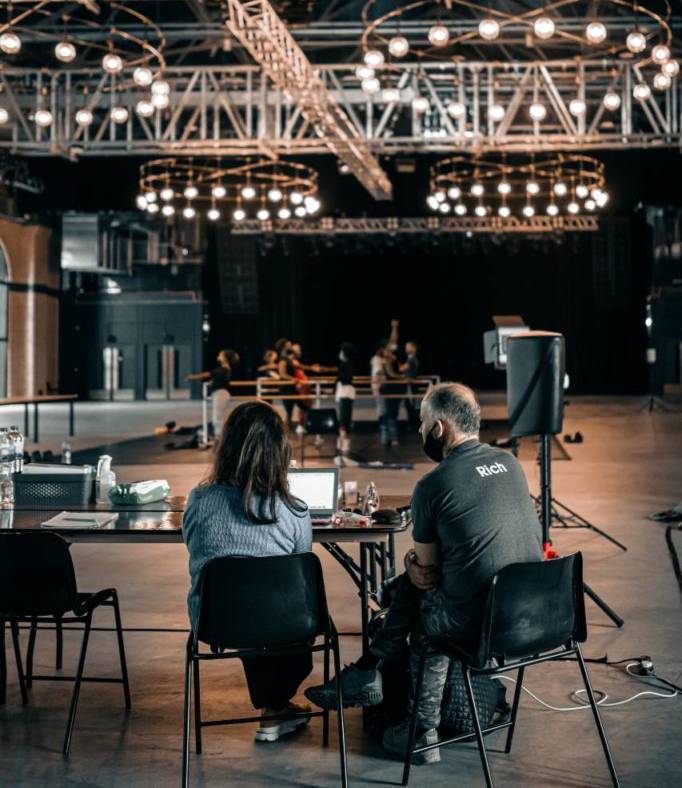
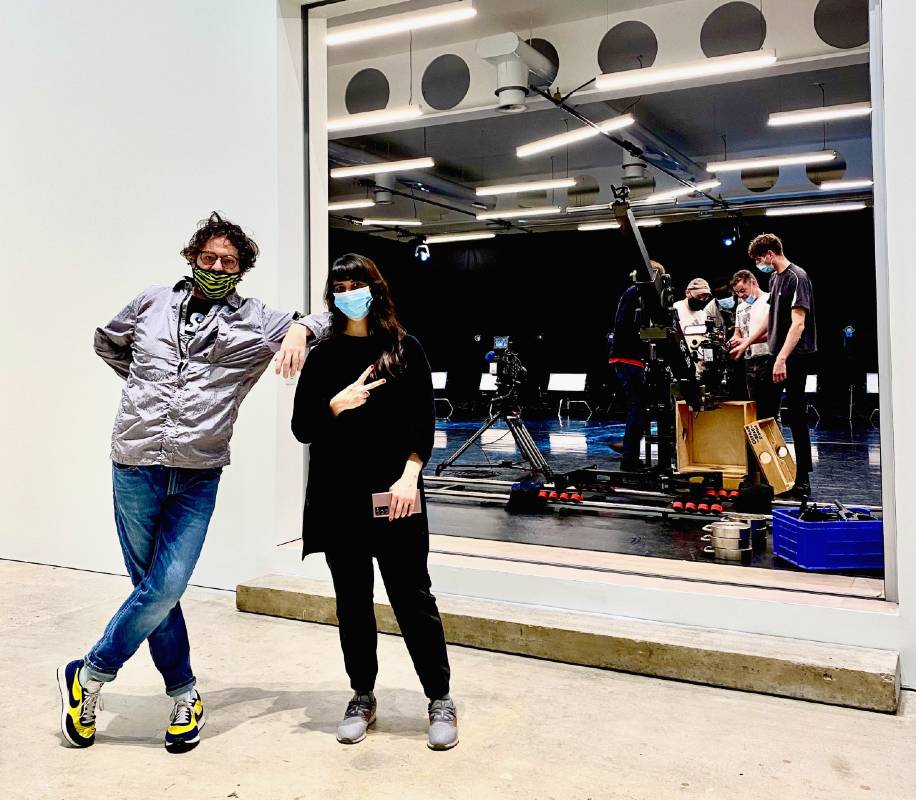
We also develop talent at the early stages of ballet through our subsidised Junior School & Junior Associate Programme, providing professionally taught ballet classes led by teachers of diverse heritage to children and young people aged 3 to 18. Our Junior Associate Programme is designed to support and inspire girls and young women aged 12 to 16 during the crucial pre-vocational stage of ballet training. This cements our commitment to reaching a critical mass of young people for whom the artform of ballet has historically been closed and is part of our contribution to diversifying ballet in the UK.
We challenge perceptions in ballet, promote greater inclusion in dance training, and are growing audience diversity for ballet and the wider dance sector across the UK. We are also playing a vital role in advocating wider societal change through our industry-changing collaborations, such as working with Freed of London to create the first UK made pointe shoes for Black, Asian, and culturally diverse dancers.
Available for most ios and Android devices.
Watch Films, Documentaries & Ballet Classes anytime, anywhere–personalized for you

On large screen
Smart TVs, Game Consoles, Android TV, DVD, Blue-ray players and more.

On Mobile
Available on phone and tablet with Android or ios, wherever you go.
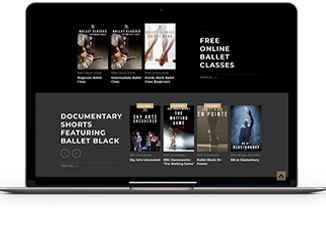
Desktops
Use your PC desktop or laptop no matter what size it is.

